Evaluating the feasibility of pangolin farming and its potential conservation impact (Open Access)
Pangolins are threatened by overexploitation for local and international use. They are subject to an international commercial trade ban, and are also the focus of other interventions, including attempts at commercial captive breeding. The impact that the latter could have on the conservation of wild populations deserves consideration. We critically evaluate the feasibility of commercial captive breeding (or farming) of pangolins to displace wild collection and assess its potential conservation impact on pangolin conservation using a recently published framework developed for this purpose. Of the 17 conditions posited that need to be met for supply-side interventions to displace wild collection, we find that pangolins meet a maximum of only six conditions. This analysis suggests that pangolin farming will not displace wild collection in the near future. Major barriers include an inability to breed pangolins on a commercial scale and available data suggest that it would be unprofitable. The immediate impact of pangolin farming on conservation of the species’ is unclear, but it is unlikely to benefit the conservation of wild populations. If commercial captive breeding were possible, it is uncertain how it would affect economic incentives for poaching, interactions between legal and illegal markets, stockpile policies, and how consumers and Traditional Chinese Medicine (TCM) practitioners would respond. To understand better the potential overall impact of pangolin farming on wild populations there is a need for further research on these uncertainties. The framework used has utility in analysing the potential impact of wildlife farming but there remains a need for a more robust approach to evaluate potential impacts of supply-side interventions.
D.W.S. Challender, M. ‘t Sas-Rolfes, et al. (2019) Evaluating the feasibility of pangolin farming and its potential conservation impact. Global Ecology and Conservation. Vol.20. https://doi.org/10.1016/j.gecco.2019.e00714.
Published: Aug 2019 | Categories: Research Articles
Join & Contact us
11a Mansfield Rd
Oxford OX1 3SZ



